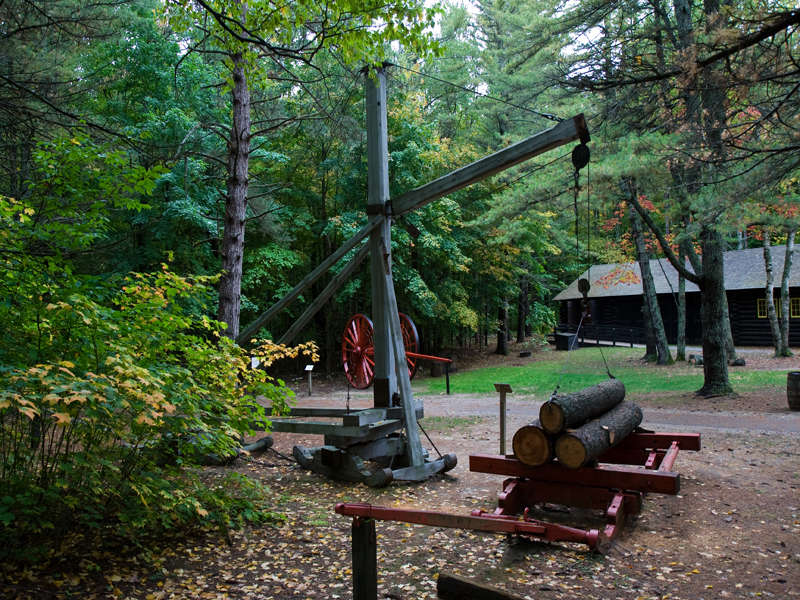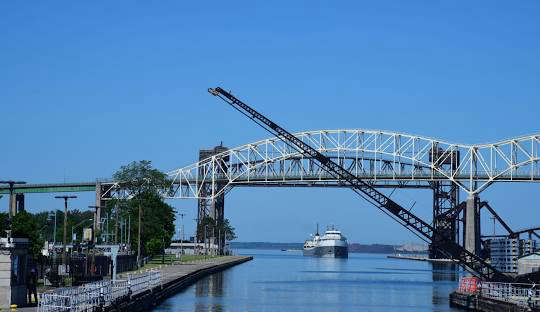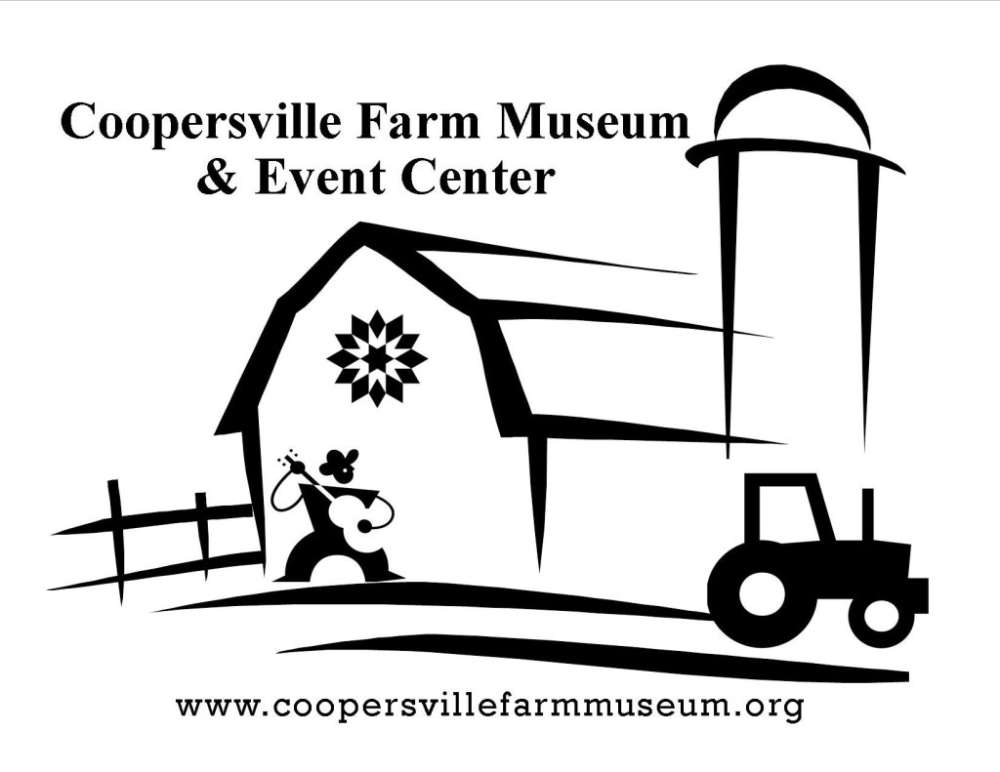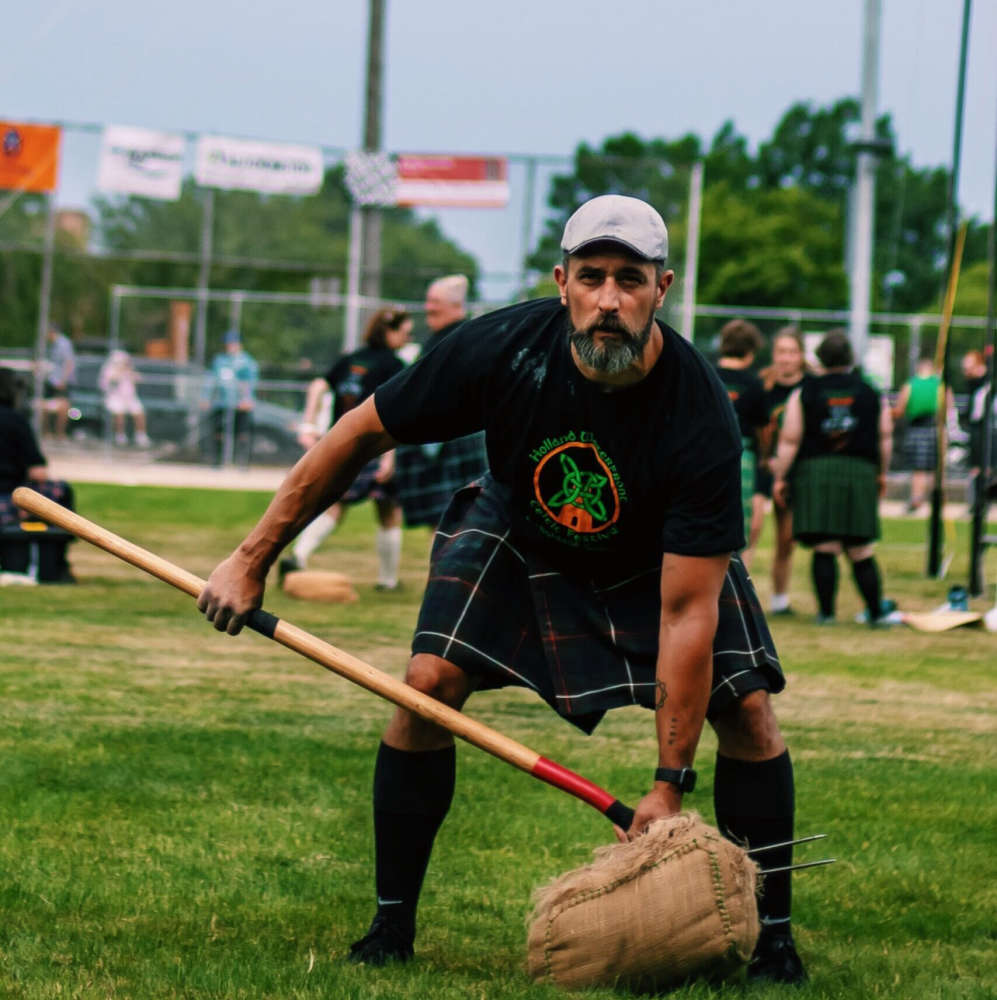
Hartwick Pines is the largest state park in the Lower Peninsula and features Old Growth Pines and a logging museum .
Hartwick Pines State Park in Grayling MI – With nearly 10,000 acres, Hartwick Pines State Park is the largest state park in the lower peninsula and the fifth largest park in the entire state. The “Pines” is the location of the Michigan Forest Visitors Center, the official state interpretive center of the Michigan forest industry, from the rustic logging era of the late 1800s, to the modern high-tech forest product industries of today. A Recreation Passport is necessary to enter the park.
Enjoy a Visitors Center, paved and unpaved hiking trails, mountain biking trails, old-time logging camp and chapel and learn about part of Michigan’s forests and history.
Michigan’s Forest…its past, present and future, is the theme of the 1,500 square foot exhibit hall. Visitors find hands-on exhibits, dioramas and the talking “Living Tree”. Interpreted is the natural origin of the Michigan forest, the lumber era, forest products of yesterday and today and the development of forest management.
Within the Visitor Center is a 105 seat auditorium featuring a nine-projector multi-image slide program, “The Forest, Michigan’s Renewable Resource”. The 14 minute show orients visitors to the story of Forest Management from the logging era to the present. The Auditorium also hosts a variety of programs, videos and special presentations. Groups will find space for meetings and education opportunities in the conference style classroom. This room features a TV/VCR unit and a whiteboard. Seating capacity is approximately 35. The room is available by reservation. The Michigan Forest Visitor Center is open all year.
The principal feature of the park is the forest of old growth white pines. At one time totaling 85 acres, storm damage and age have reduced the mature forest to some 49 acres. Stretching skyward for 120 feet and more, the giant pines are the only remnants of what Michigan looked like before the arrival of men with axes.
By the 1860s the forests in the Eastern part of the country had been depleted, and Michigan became a source of supply. By 1869 the state had become the largest lumber producer in the country, and maintained that distinction until the turn of the century. Vast quantities of white pine went to re-build Chicago after the great fire, and to build the towns and villages popping up along the railroads in the treeless great plains.
Each year more than 250,000 visitors stroll through the pines, marveling at trees here before the Revolutionary War. Foot trails wind through the old growth forest area, with guided interpretive hikes and evening programs available from professional park interpreters. The park abounds in a multitude of ecosystems in addition to mature and immature pine forests, including lakes, streams, swamps and hardwood hills, which support thousands of bird, animal and plant species.
A replica old time logging camp shows how thousands of men lived and worked in the forests a century ago. During several weekends in the warm months the camp comes alive when the steam engine from the working sawmill is fired up to cut lumber. During these times men and women skilled in the old crafts, such as blacksmithing and carving, settle in as a living exhibit.
The Hartwick Pines Chapel, a favorite wedding place in the heart of the forest, is a secluded spot for a few minutes of peace and serenity. A brochure leads visitors on a self guided, one hour tour along the paved, handicapped-accessible Old Growth Forest Foot Trail. Several other hiking trails are available and Cross Country skiers and Mountain Bike enthusiasts share miles of rolling wilderness terrain in their own season.
Campers can enjoy a 100 site campground, including 36 full hook-up modern facilities. For those who want to stay, but not camp, a secluded Rustic Cabin, with sleeping capacity for six is available by reservation. Also in the park is a day use area, which provides a picnic area, playground and covered shelter. For reservations call 800-44PARKS.
Fishing is allowed along the East Branch of the AuSable River and from handicapped accessible piers at Bright and Glory Lakes. Outside the old growth forests and developed areas, the park is open to hunting during established seasons.

 8/8/24 - Travelin' Together Series: Pasty Fest - Calumet, MI
8/8/24 - Travelin' Together Series: Pasty Fest - Calumet, MI
 7/25/24 - Travelin' Together Series - The Soo Locks
7/25/24 - Travelin' Together Series - The Soo Locks
 7/11/24 - Travelin Together Series: Coopersville Farm Museum & Event Center
7/11/24 - Travelin Together Series: Coopersville Farm Museum & Event Center
 6/20/24 - Travelin' Together Series - Holland Celtic Festival
6/20/24 - Travelin' Together Series - Holland Celtic Festival


